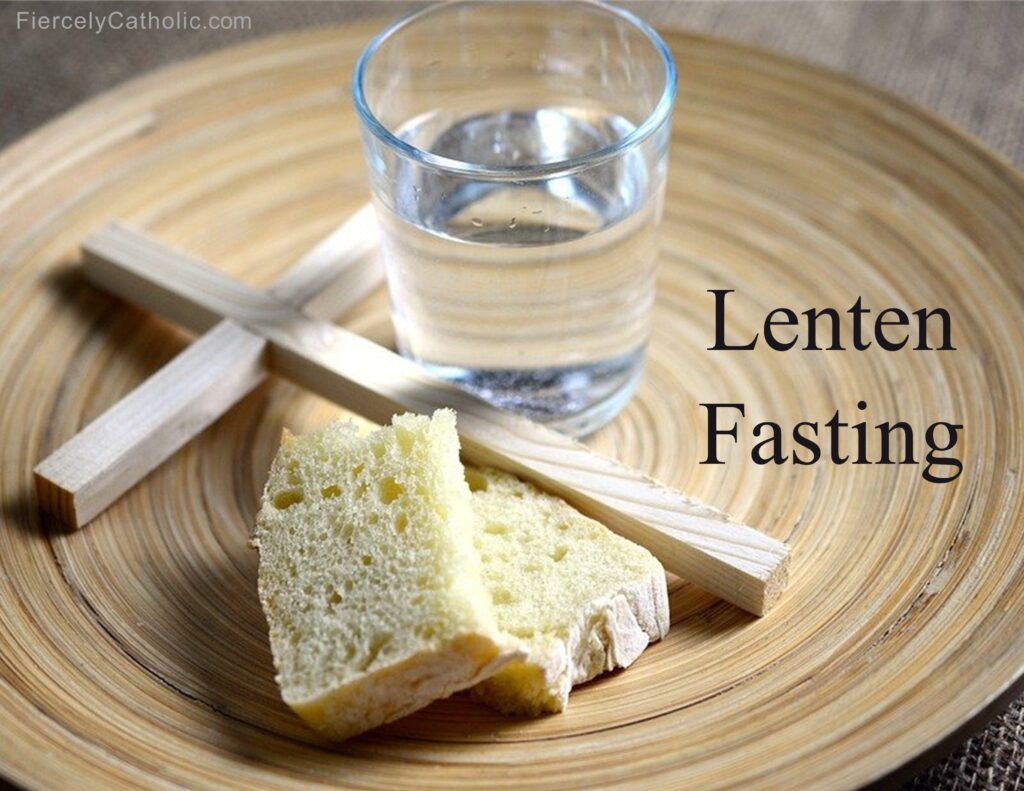
Jesus fasted and taught is disciples to fast, not merely to eat less food but to experience an interior conversion. Christian spiritual fasting, particularly during Lent, should be focus on turning away from sin and turning toward God.
On Ash Wednesday and Good Friday, Catholics are required to eat only one full meal and two smaller meals that do not add up to a full meal. Snacking between meals should also be eliminated.
Catholics often also give up a particular item, habit, or comfort for the duration of Lent, depriving themselves of something good to focus on the greater good.
Along with prayer and almsgiving, the practice of fasting is a pillar of the season of Lent.
Catholics are also encouraged to fast, make sacrifices, and perform other penitential practices throughout the year.
Loving the way that God intends:
Offering our hunger as a prayer to God:
A deeper meaning behind fasting:
The seasons and days of penance in the course of the liturgical year (Lent, and each Friday in memory of the death of the Lord) are intense moments of the Church’s penitential practice. These times are particularly appropriate for spiritual exercises, penitential liturgies, pilgrimages as signs of penance, voluntary self-denial such as fasting and almsgiving, and fraternal sharing (charitable and missionary works).
Catechism of the Catholic Church 1438
Fasting during Lent is not like making New Years Resolutions:
Recognizing what we have little control over:
A better understanding of why we fast during Lent:
“When you fast, do not look gloomy like the hypocrites. They neglect their appearance, so that they may appear to others to be fasting. Amen, I say to you, they have received their reward. But when you fast, anoint your head and wash your face so that you may not appear to others to be fasting, except to your Father who is hidden. And your Father who sees what is hidden will repay you.”
Matthew 6: 16-18
More than just giving up food:
Saying “no” to say “yes” to greater things:
Fasting means putting a limit on so many desires, sometimes good ones, in order to have full mastery of oneself, to learn to control one’s own instincts, to train the will in good. Acts of this kind were once known as “fioretti” (small acts of sacrifice). The name changes, but the substance remains! They were and remain acts of renunciation, carried out for love of the Lord or of Our Lady, with a noble purpose to attain. They were and are a “sport”, and indispensable training in order to be victorious in the competitions of the Spirit! Fasting, finally, means depriving oneself of something in order to meet the need of one’s brother, becoming, in this way, and exercise of goodness, of charity.
Pope John Paul II, Address to Young People at Vatican Basilica, 21 March 1979
The interesting history of Lenten fasting:
The Truth, Goodness, and Beauty of the Catholic Church
An incredible sense of Christ’s presence:
Share this page with friends and family to start a conversation about your faith.
Don’t miss a post. Learn more about the Catholic Church and strengthen your Catholic faith.
Find more Fiercely Catholic video issues here.
Subscribe here.


